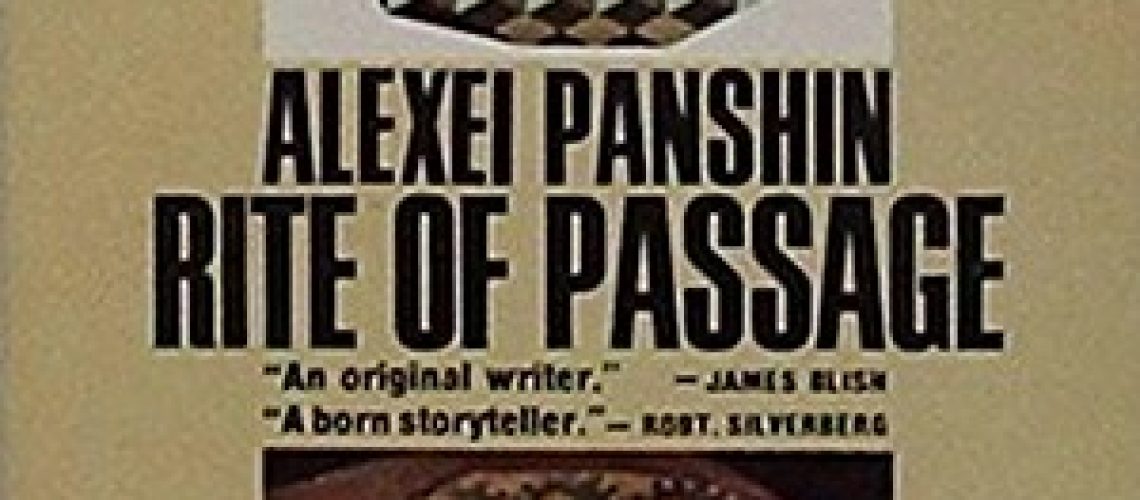A century and a half after Earth has been wrecked, humanity exists in two spheres. There are the hardscrabble colonies, where survival is the watchword, as man tries to live on alien, often unfriendly environments. The people are often poor, desperate and technologically backward. And then there are the Ships that travel the spaceways. Technologically advanced and relatively rich, the Ships have a strict regime for keeping themselves from being overpopulated. Every person who reaches their fourteenth birthday must train for an ordeal called the Trial. The rules of the Trial are simple — survive for a month dropped off on a random place on a selected colony world. Survive that month, and you get to return to the ship, become an adult and take your place in ship society.

Mia Havero is the daughter of the chairman of the Ship’s Council, and as her 14th birthday approaches, so does her Trial. On the planet Tintera, will she turtle and hide, or engage with the inhabitants of the planet? The choices Mia makes will determine not only if she ultimately survives her Rite of Passage, but the fate of her Ship, and an entire world.
Is this the latest, hot YA novel coming soon from Angry Robot’s Strange Chemistry, Pyr or Tor? Nope, Mia’s story is the plot of Rite of Passage, the 1968 Nebula-winning novel from Alexei Panshin.
Alexei Panshin’s career, for those deeply immersed in the genre, mainly revolves around his contentious relationship with Robert Heinlein. His critical work, Heinlein in Dimension (published in 1968, same as Rite of Passage) has been a touchstone of Heinlein criticism and caused a long-running conflict between the two. (Early excerpts of the book published in fanzines also helped Panshin garner a 1967 Hugo for Best Fan Writer). However, beyond his role as a critic, he did write a small slate of stories and a few novels, of which Rite of Passage remains the most relevant and readable today.
Rite of Passage is told in flashback, with Mia reflecting on the events years after the fact. While this does take away a bit of narrative tension (we know she is going to survive, but not how), the first person reflection makes the novel a coming-of-age memoir. Mia starts off as a relatively spoiled brat who quickly gets that veneer rubbed off of her: first, on the ship, when she and her father move to a relatively disreputable area of the ship, and then, of course her experience on Tintera, the planet for her Trial. What she encounters there is hardly what she expected to deal with, and Mia’s facing of what is to be found there, and its aftermath, is the heart of the novel.
The novel is refreshingly modern. The obvious thing — having a strong female protagonist for a YA novel — is not a new invention, but it was not common in 1968 in genre fiction. There are issues of class stratification, but the Ship is remarkably integrated in terms of race. (One of Mia’s tutors is Mr. Mbele, for example). Like any good SF, the novel explores class and economic disparity by using completely new metaphors (Ships versus Colonies). Panshin gets bonus points by making the novel egalitarian and enlightened by the standards of his time in the bargain.
I like to think of Rite of Passage as Panshin’s attempt to write a Heinlein juvenile. And what an attempt it is. An empowered female protagonist, thorny ethical and social problems, social conflicts with no easy answers, a solid character arc, interesting and vivid worldbuilding. A technically excellent and very readable narrative. Rite of Passage works well for readers of all ages, but readers in the YA market looking for a SF book to glomp onto could and should eat this up with a spoon.
If you brought a copy of this to an alternative universe where it was never written, every SF imprint worth their salt would be clamoring to buy it, publish it, and probably angle for a movie deal (Hey, Hollywood! You can still do that in our world! I’d watch this!). Rite of Passage is well deserving of its Nebula Award win and its Hugo Award Nomination (losing to Stand on Zanzibar, a worthy novel in its own right)
Sometimes things are older than you think. Rite of Passage remains as vivid and strong today as it did when it was first released. I came across it myself because a GM in a roleplaying game I was in pushed a copy into my (and the other players’) hands. I had heard of Panshin through his criticism but had never thought to read his own fiction. When I decided to, though, I devoured it, eagerly. I strongly recommend it, especially to aspiring writers looking to write YA fiction. This is an apogee of Heinleinian-style juvenile fiction, and the text still has lessons to teach today, for writers and readers alike. Read it.








One Response